Delta Airlines 2003 Annual Report Download - page 26
Download and view the complete annual report
Please find page 26 of the 2003 Delta Airlines annual report below. You can navigate through the pages in the report by either clicking on the pages listed below, or by using the keyword search tool below to find specific information within the annual report.-
 1
1 -
 2
2 -
 3
3 -
 4
4 -
 5
5 -
 6
6 -
 7
7 -
 8
8 -
 9
9 -
 10
10 -
 11
11 -
 12
12 -
 13
13 -
 14
14 -
 15
15 -
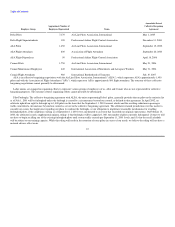 16
16 -
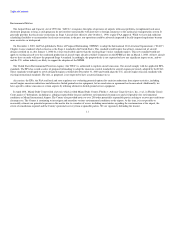 17
17 -
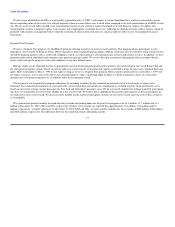 18
18 -
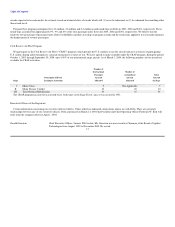 19
19 -
 20
20 -
 21
21 -
 22
22 -
 23
23 -
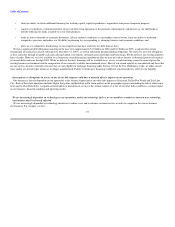 24
24 -
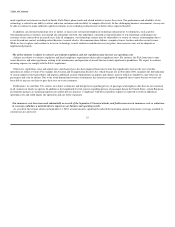 25
25 -
 26
26 -
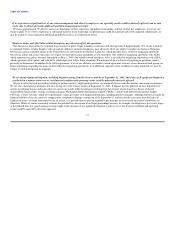 27
27 -
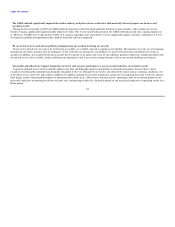 28
28 -
 29
29 -
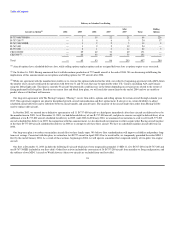 30
30 -
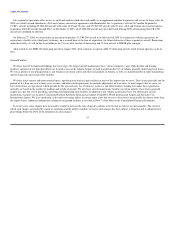 31
31 -
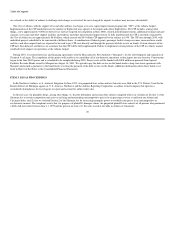 32
32 -
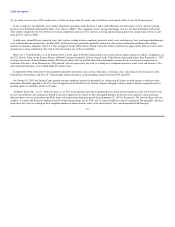 33
33 -
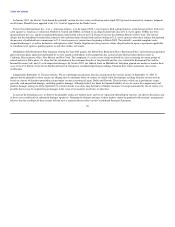 34
34 -
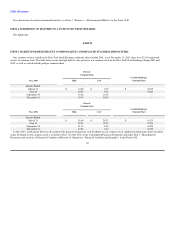 35
35 -
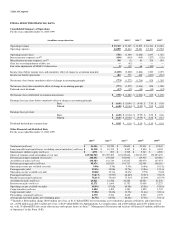 36
36 -
 37
37 -
 38
38 -
 39
39 -
 40
40 -
 41
41 -
 42
42 -
 43
43 -
 44
44 -
 45
45 -
 46
46 -
 47
47 -
 48
48 -
 49
49 -
 50
50 -
 51
51 -
 52
52 -
 53
53 -
 54
54 -
 55
55 -
 56
56 -
 57
57 -
 58
58 -
 59
59 -
 60
60 -
 61
61 -
 62
62 -
 63
63 -
 64
64 -
 65
65 -
 66
66 -
 67
67 -
 68
68 -
 69
69 -
 70
70 -
 71
71 -
 72
72 -
 73
73 -
 74
74 -
 75
75 -
 76
76 -
 77
77 -
 78
78 -
 79
79 -
 80
80 -
 81
81 -
 82
82 -
 83
83 -
 84
84 -
 85
85 -
 86
86 -
 87
87 -
 88
88 -
 89
89 -
 90
90 -
 91
91 -
 92
92 -
 93
93 -
 94
94 -
 95
95 -
 96
96 -
 97
97 -
 98
98 -
 99
99 -
 100
100 -
 101
101 -
 102
102 -
 103
103 -
 104
104 -
 105
105 -
 106
106 -
 107
107 -
 108
108 -
 109
109 -
 110
110 -
 111
111 -
 112
112 -
 113
113 -
 114
114 -
 115
115 -
 116
116 -
 117
117 -
 118
118 -
 119
119 -
 120
120 -
 121
121 -
 122
122 -
 123
123 -
 124
124 -
 125
125 -
 126
126 -
 127
127 -
 128
128 -
 129
129 -
 130
130 -
 131
131 -
 132
132 -
 133
133 -
 134
134 -
 135
135 -
 136
136 -
 137
137 -
 138
138 -
 139
139 -
 140
140 -
 141
141 -
 142
142 -
 143
143 -
 144
144 -
 145
145 -
 146
146 -
 147
147 -
 148
148 -
 149
149 -
 150
150 -
 151
151 -
 152
152 -
 153
153 -
 154
154 -
 155
155 -
 156
156 -
 157
157 -
 158
158 -
 159
159 -
 160
160 -
 161
161 -
 162
162 -
 163
163 -
 164
164 -
 165
165 -
 166
166 -
 167
167 -
 168
168 -
 169
169 -
 170
170 -
 171
171 -
 172
172 -
 173
173 -
 174
174 -
 175
175 -
 176
176 -
 177
177 -
 178
178 -
 179
179 -
 180
180 -
 181
181 -
 182
182 -
 183
183 -
 184
184 -
 185
185 -
 186
186 -
 187
187 -
 188
188 -
 189
189 -
 190
190 -
 191
191 -
 192
192 -
 193
193 -
 194
194 -
 195
195 -
 196
196 -
 197
197 -
 198
198 -
 199
199 -
 200
200 -
 201
201 -
 202
202 -
 203
203 -
 204
204 -
 205
205 -
 206
206 -
 207
207 -
 208
208 -
 209
209 -
 210
210 -
 211
211 -
 212
212 -
 213
213 -
 214
214 -
 215
215 -
 216
216 -
 217
217 -
 218
218 -
 219
219 -
 220
220 -
 221
221 -
 222
222 -
 223
223 -
 224
224 -
 225
225 -
 226
226 -
 227
227 -
 228
228 -
 229
229 -
 230
230 -
 231
231 -
 232
232 -
 233
233 -
 234
234 -
 235
235 -
 236
236 -
 237
237 -
 238
238 -
 239
239 -
 240
240 -
 241
241 -
 242
242 -
 243
243 -
 244
244 -
 245
245 -
 246
246 -
 247
247 -
 248
248 -
 249
249 -
 250
250 -
 251
251 -
 252
252 -
 253
253 -
 254
254 -
 255
255 -
 256
256 -
 257
257 -
 258
258 -
 259
259 -
 260
260 -
 261
261 -
 262
262 -
 263
263 -
 264
264 -
 265
265 -
 266
266 -
 267
267 -
 268
268 -
 269
269 -
 270
270 -
 271
271 -
 272
272 -
 273
273 -
 274
274 -
 275
275 -
 276
276 -
 277
277 -
 278
278 -
 279
279 -
 280
280 -
 281
281 -
 282
282 -
 283
283 -
 284
284 -
 285
285 -
 286
286 -
 287
287 -
 288
288 -
 289
289 -
 290
290 -
 291
291 -
 292
292 -
 293
293 -
 294
294 -
 295
295 -
 296
296 -
 297
297 -
 298
298 -
 299
299 -
 300
300 -
 301
301 -
 302
302 -
 303
303 -
 304
304
 |
 |

Table of Contents
liability to persons (other than employees or passengers) for claims resulting from acts of terrorism, war or similar events. At the same time, aviation insurers
significantly increased the premiums for such coverage and for aviation insurance in general. The U.S. government is providing U.S. airlines with war-risk
insurance to cover losses to passengers, third parties (ground damage) and the aircraft hull. This coverage extends through August 2004 (with a possible
extension to December 31, 2004 at the discretion of the Secretary of Transportation), but the coverage may not be extended beyond that time. We expect that
if the U.S. government fails to renew the war-risk insurance that it provides, we will be required to replace such coverage commercially or consider other
alternatives. There can be no assurance that such commercially provided war-risk insurance coverage will be adequate to protect our risk of loss from future
acts of terrorism or will be provided on terms that will not have a material adverse impact on our financial condition and operating results.
Our business is dependent on the availability and price of aircraft fuel. Significant disruptions in the supply of aircraft fuel or periods of high fuel costs
would materially adversely affect our operating results.
Our operating results can be significantly impacted by changes in the availability or price of aircraft fuel. Fuel prices increased substantially in 2003, when
our average fuel price per gallon rose 22% to approximately 81.78¢ as compared to 2002. Our fuel costs represented 14%, 12% and 12% of our operating
expenses in 2003, 2002 and 2001, respectively. Due to the competitive nature of the airline industry, we may not be able to pass on any increases in fuel
prices to our customers by increasing our fares. Furthermore, the impact of lower aircraft fuel prices could be offset by increased price competition, and a
resulting decrease in revenues, for all air carriers.
Our aircraft fuel purchase contracts do not provide material protection against price increases or assure the availability of our fuel supplies. We purchase
most of our aircraft fuel from petroleum refiners under contracts that establish the price based on various market indices. We also purchase aircraft fuel on the
spot market, from off-shore sources and under contracts that permit the refiners to set the price. To attempt to reduce our exposure to changes in fuel prices,
we periodically enter into heating and crude oil derivatives contracts, though we may not successfully manage this exposure. Depending on the type of
hedging instrument used, our ability to benefit from declines in fuel prices may be limited.
Although we are currently able to obtain adequate supplies of aircraft fuel, it is impossible to predict the future availability or price of aircraft fuel. Political
disruptions or wars involving oil-producing countries, changes in government policy concerning aircraft fuel production, transportation or marketing, changes
in aircraft fuel production capacity, environmental concerns and other unpredictable events may result in fuel supply shortages and fuel price increases in the
future.
20
